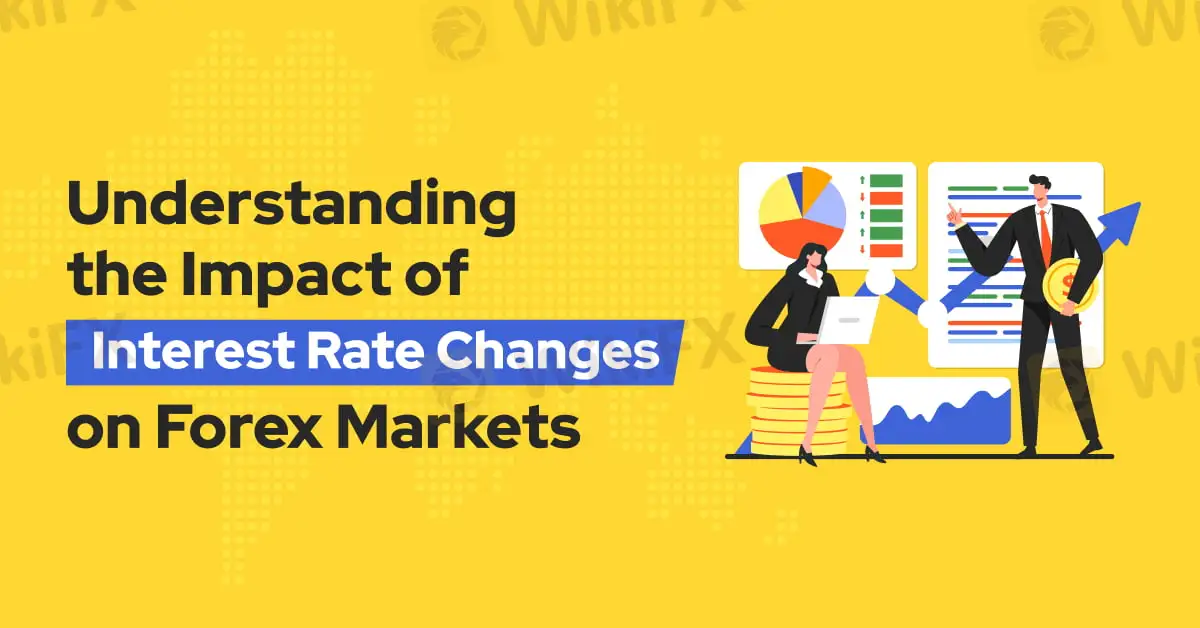简体中文
繁體中文
English
Pусский
日本語
ภาษาไทย
Tiếng Việt
Bahasa Indonesia
Español
हिन्दी
Filippiiniläinen
Français
Deutsch
Português
Türkçe
한국어
العربية
Understanding the Impact of Interest Rate Changes on Forex Markets
Abstract:Interest rates are one of the most influential factors in the forex market, shaping currency values and driving trader decisions. When central banks adjust interest rates, they send ripples through global markets. Understanding how these changes impact currency movements is crucial for forex traders aiming to stay ahead of market trends.

Interest rates are one of the most influential factors in the forex market, shaping currency values and driving trader decisions. When central banks adjust interest rates, they send ripples through global markets. Understanding how these changes impact currency movements is crucial for forex traders aiming to stay ahead of market trends.

What Happens When Interest Rates Rise?
When a central bank raises interest rates, it signals confidence in the economys health. Higher rates attract foreign investors seeking better returns on fixed-income assets like bonds. As demand for the local currency increases to purchase these assets, the currency typically strengthens.
For example, if the US Federal Reserve raises interest rates, the US dollar (USD) often appreciates against other currencies. Traders anticipate higher returns from US-based investments, increasing demand for USD. This scenario creates opportunities for traders to go long on the dollar against weaker currencies.
However, higher interest rates also raise borrowing costs, potentially slowing down consumer spending and business investment. Traders must assess whether the economic environment can sustain higher rates without stifling growth.
What Happens When Interest Rates Fall?
Conversely, when a central bank lowers interest rates, it usually aims to stimulate economic activity. Lower rates make borrowing cheaper, encouraging businesses to expand and consumers to spend. While this can support economic growth, it also tends to weaken the local currency.
Reduced interest rates decrease the appeal of a currency for foreign investors seeking high returns. For instance, if the European Central Bank (ECB) cuts rates, the euro (EUR) might depreciate against stronger currencies like the USD. Traders often use this as an opportunity to short-sell the euro in anticipation of further declines.
Additionally, lower rates can lead to higher inflation, eroding the currencys purchasing power over time. Forex traders must carefully monitor economic indicators such as inflation rates and GDP growth to gauge how a lower interest rate environment could evolve.
What Moves the Interest Rates?
Central bank announcements, economic data releases, and geopolitical developments play critical roles in shaping interest rate expectations. Tools like the economic calendar help traders track key events such as interest rate decisions, inflation reports, and employment data.
Traders often position themselves ahead of anticipated interest rate changes. For instance, if market analysts widely expect the Bank of England (BoE) to raise rates, the pound sterling (GBP) might strengthen even before the official announcement. This phenomenon, known as “pricing in,” underscores the importance of staying informed and reacting promptly to news.
Interest rate changes are a cornerstone of forex market dynamics. Rising rates generally strengthen a currency, while falling rates typically weaken it. However, traders must consider the broader economic context, as well as market sentiment, to fully understand how rate changes impact currency pairs.
For forex traders, staying informed about central bank policies and global economic trends is non-negotiable. By closely monitoring interest rate movements, traders can develop strategies that align with market conditions and make well-informed trading decisions.

Disclaimer:
The views in this article only represent the author's personal views, and do not constitute investment advice on this platform. This platform does not guarantee the accuracy, completeness and timeliness of the information in the article, and will not be liable for any loss caused by the use of or reliance on the information in the article.
Read more

The Ultimate Guide to Automated Forex Trading in 2025
Modern markets are revolutionized by automated trading systems, which now execute 70-85% of all transactions. These advanced automated trading software solutions, commonly called trading robots or Expert Advisors (EAs), leverage algorithmic precision for automatic trading across forex, stocks, and commodities 24/7. By removing emotional interference and executing trades in microseconds, auto forex trading platforms create fair opportunities for all market participants. For those new to automated trading for beginners, these systems provide disciplined, backtested strategies while significantly reducing manual effort.

Will natural disasters have an impact on the forex market?
The forex market is known for its rapid responses to global events, but the influence of natural disasters, such as earthquakes and typhoons, can be less straightforward. While headlines may scream about catastrophic damage and economic disruption, the long-term effects on currency values often depend on a blend of immediate shock and underlying economic fundamentals.

Philippines Deports 29 Indonesians Linked to Online Scam Syndicate in Manila
Online scam groups in the Philippines trick Filipinos into gambling and love scams, from Manila to Bacolod, causing trafficking and pain as police fight back.

Why does your mood hinder you from getting the maximum return from an investment?
Investment decisions are rarely made in a vacuum. Aside from the objective data and market trends, our emotions—and our overall mood—play a crucial role in shaping our financial outcomes. Whether you’re feeling overconfident after a win or anxious after a loss, these emotional states can skew your decision-making process, ultimately affecting your investment returns.
WikiFX Broker
Latest News
How Crypto Trading Transforms FX and CFD Brokerage Industry
UK would not hesitate to retaliate against US tariffs - No 10 sources
FCA Warns Against 10 Unlicensed or Clone Firms
CySEC Warns Against 14 Unlicensed Investment Websites
Top Currency Pairs to Watch for Profit This Week - March 31, 2025
Will natural disasters have an impact on the forex market?
Philippines Deports 29 Indonesians Linked to Online Scam Syndicate in Manila
Navigating the Intersection of Forex Markets, AI Technology, and Fintech
Exposed: Deceptive World of Fake Trading Gurus – Don’t Get Fooled!
AI-Powered Strategies to Improve Profits in Forex Trading
Currency Calculator







